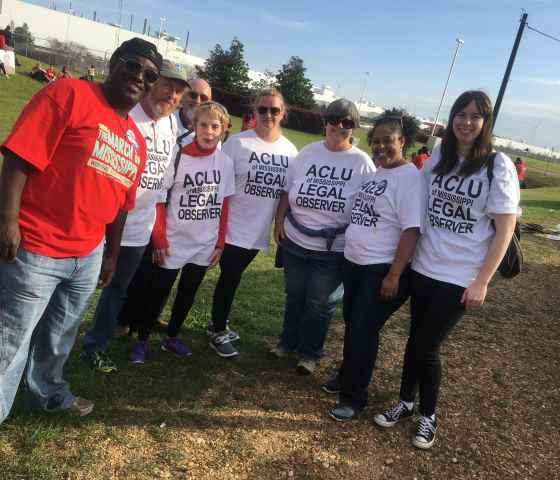SB 2681 could also allow the use of religion to discriminate on the basis of race.
Sadly, throughout our history, religion has been used to discriminate against African-Americans and other racial minorities. Mississippians still face such shameful discrimination. Bills like SB 2681 says to those who seek to discriminate based on race that they can use their religion as justification. This is not just theory.
Religion used to oppose interracial relationships
During the Civil Rights era in Virginia, when a black woman and a white man wanted to get married – in defiance of the state law criminalizing such relationships – a Virginia judge convicting the couple justified his actions using the Bible: “Almighty God created the races white, black, yellow, malay and red, and he placed them on separate continents . . . The fact that he separated the races shows that he did not intend for the races to mix.”
In the 1980s, Bob Jones University, a religiously affiliated school in South Carolina, wanted an exemption from a rule denying tax-exempt status to schools that practice racial discrimination. The “sponsors of the University genuinely believe[d] that the Bible forbids interracial dating and marriage,” and it was school policy that students engaged in interracial relationships, or advocacy thereof, would be expelled.
Religion used to oppose serving African-Americans in restaurants
Also in the 1960s, religion was also used to justify turning away Black people from public businesses, like restaurants. In 1966, three African-American customers brought a lawsuit against Piggie Park restaurants, and their owner, Maurice Bessinger, for refusal to serve them. Bessinger argued that enforcement of the Civil Rights Act, which prohibits such discrimination, violated his religious freedom “since his religious beliefs compel[ed] him to oppose any integration of the races whatever.”
Mississippi’s prominent segregationists who used religion to support their beliefs
Former Governor and U.S. Senator Theodore Bilbo justified his hateful racism by relying on the Bible: In a book entitled Take Your Choice: Separation or Mongrelization, Bilbo wrote that “[p]urity of race is a gift of God . . . . And God, in his infinite wisdom, has so ordained it that when man destroys his racial purity, it can never be redeemed.” Allowing “the blood of the races [to] mix,” according to Bilbo, was a direct attack on the “Divine plan of God.” There “is every reason to believe that miscengenation and amalgamation are sins of man in direct defiance to the will of God.”
Mississippi’s recent examples of using religion to discriminate based on race
As recently as 2012, a predominantly white church in Crystal Springs turned away a black couple from marrying in their church.
SB 2681 would allow religious believers to argue that their beliefs allow them to discriminate based on race. Based on American and Mississippi history, this possibility is not remote. We cannot allow this law to pass.
By adding the word substantial in the newest amendment, this bill is “better,” BUT better is not enough when constitutional rights are on the line. The amendment STILL does not fully protect critical civil liberties and is still bad.
- While the bill adds that a person must be substantially burdened, it still does not go far enough to protect civil liberties for all people.
- It still allows private individuals and businesses to discriminate against people.
- It still does not protect against government funding of discrimination and still includes withholding of government benefits.
- The bill still needs work to completely prevent discrimination of any kind.
The bill will come up on the House floor at some point in the next few days. Keep the pressure on your legislators! The fight isn’t over! We can still defeat this bad bill.
